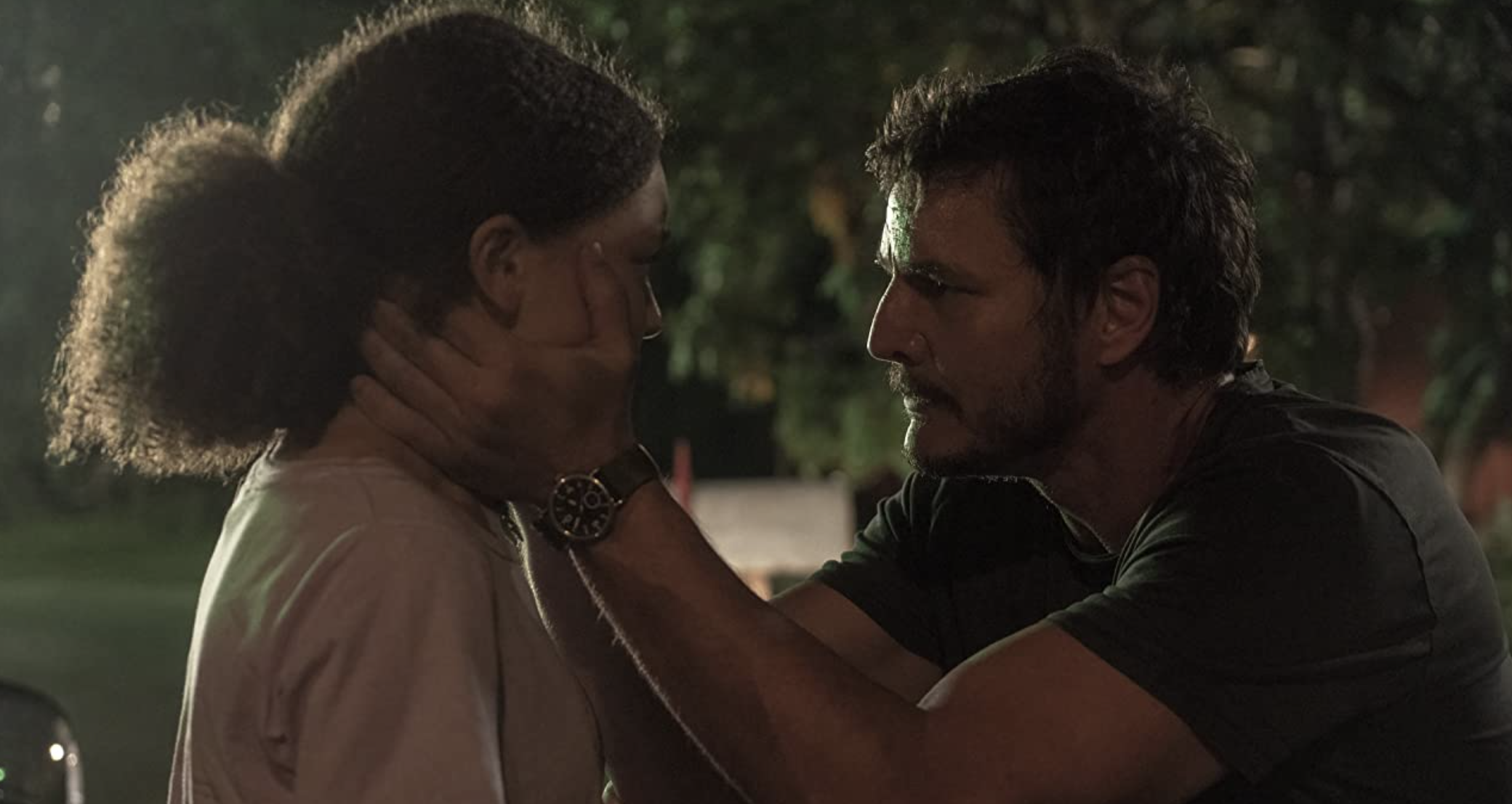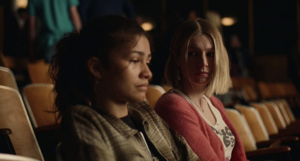A disheveled child stumbles through a New England forest. Clad in tattered clothes and dirty green sneakers, the boy comes to a ledge and peers out at his destination: Boston. The once noble skyline of the city has been reduced to rubble, rusted skyscrapers and broken-down cars disfiguring the landscape. The boy eventually reaches the Boston QZ, or Quarantine Zone, before being hastily ushered inside by the soldiers that guard the walls of the enclosed community.
Once inside, soldiers begin their examination of the silent child. A device is pressed to his neck, before emitting a curt beep. One of the soldiers, tears in her eyes, looks at the boy and promises new clothes, toys, and food, but the boy remains speechless. In the next scene, we see the child’s limp body in the back of a truck, wearing the same dirty green sneakers, as workers unceremoniously toss him into a burn pit along with several other infected corpses. Welcome to the year 2023, twenty years after the world ended.
The Last of Us (2023) is an HBO Max original series based on the action-adventure video game of the same name produced by Naughty Dog. To many fans, adapting the story of this video game for the screen might seem like a no-brainer—since the game’s release in 2013, it has won numerous accolades, sold millions of copies, and even produced a sequel that has received equally high praise. However, video game adaptations for film or television have historically been wildly hit-or-miss. When done successfully, an adaptation can transport viewers to a beloved world that pays homage to the source material and its fans; done unsuccessfully, that world becomes a hollow cash-grab that makes a mockery of the game from which it’s based. Fortunately, although there are plenty of episodes that have yet to be released, The Last of Us seems to be of the former— a faithful retelling of a phenomenal story that changes just enough to feel unique while still being compelling to fans and newcomers alike.
The narrative hinges on the relationship between Joel and Ellie, two survivors looking for some semblance of meaning in their bleak lives, as they attempt to navigate the treacherous and grim landscape of the post-apocalyptic United States. Joel (Pedro Pascal) is a grizzled old man and veteran of the apocalypse. In order to endure this hell on Earth, Joel has calloused himself to his past trauma, cauterizing his wounds, both physical and mental. On the other hand, Ellie (Bella Ramsey) is a 14-year-old orphan who has been abandoned by anyone that ever cared for her. She is alone, and thus has steeled herself and adopted a sharp, quick-witted personality that hides her weakness. The two come together and, out of necessity, form a mutually beneficial pact to leave the Boston QZ and travel west.
The relationship between Joel and Ellie is the heart and soul of the original games, and thus this show’s success will hinge on their chemistry. So far, Pascal and Ramsey have done a fantastic job of bringing these characters to life on the small screen. Both actors show an excellent understanding of what endeared fans to these protagonists in the first place. From the little interaction we’ve seen between them so far, Pascal’s and Ramsey’s acting perfectly encapsulates the pseudo-father-daughter relationship that formed the bedrock of the original game.
Perhaps one of the finest aspects of this new series is the assembly of the grim world in which Joel and Ellie live. The zombie genre is now a staple of horror media, with the widespread appeal and success of shows like The Walking Dead and films like Train to Busan (2016). Yet, this genre often fails to maintain a balanced mix of tragedy and terror, and thus, the resulting film or show either fails to scare or is exceedingly shallow. The Last of Us has found the perfect balance in the equally soul-crushing and horrific setting of the show. There is no lack of tragic imagery—in just three episodes, we’ve seen governments bombing their own cities, soldiers killing innocent people, and characters dying in the arms of a loved one, only to be zombified and turn on their former friends and family. Speaking of which, the zombies in this show are some of the most terrifying ever depicted on the screen. They pursue their victims with alarming speed, their limbs twitch and move erratically, and hard fungal growths encase their faces and heads. While stalking their prey, they make distinctive clicking noises to echolocate, then pounce and either tear their victims apart or infect them. Preserving the frights from the original games is no easy task, but the show creators have done a spectacular job at it so far.
In fact, the way in which the show creators preserved and adapted the foundations of the original video game is equally impressive and admirable. So far, this series has been an almost scene-for-scene recreation of the original narrative, with just enough details changed to still keep fans unsuspecting of what’s to come. For example, the first episode of The Last of Us actually begins in the year 2003, showing the audience how Joel survived the outbreak of the zombie apocalypse in his home city of San Antonio, Texas. In essence, this is an exact recreation of the first scene of the game, where Joel attempts to escape the city in his pickup truck. Yet, the show producers shrewdly change just enough details to maintain the same level of tension that characterizes the scene. Instead of a car accident forcing Joel to continue his escape on foot, in the show, a plane crashes on the road and produces the same outcome. In this way, watchers who have played the original game are kept on their toes.
Other changes are employed as well for practicality purposes. Instead of airborne spores being a method by which the zombie plague can spread, the zombies infect victims via tendrils that protrude from the mouth. I suspect this change occurred to prevent the actors from having to wear gas masks—like they do in the game—as it might impede their acting ability. The one change that confuses me is the decision to alter the timeline from the original game, in which the apocalypse began in 2013. In this series, the end of the world is shifted back 10 years, setting the show in the year 2023. It places this series firmly in an alternate universe where the past 20 years of history never occurred, but because it really has no effect on the plot, I don’t see why it was necessary. The only effect is that it freezes the outfits and references of the characters in the early 2000s era, which while cheeky, is not in any way consequential.
Regardless, The Last of Us is proving to be both a paragon of the zombie apocalypse genre as well as one of the most masterful displays of video game adaptation to date. If you played the original game and loved the beautiful story of companionship through adversity, it is worth a watch. If this is your first time with this franchise but love post-apocalyptic zombie media, it is worth a watch. Frankly, if you like good TV, it is worth a watch. You won’t want to miss out on this heartbreaking, terrifying, outstanding show.







